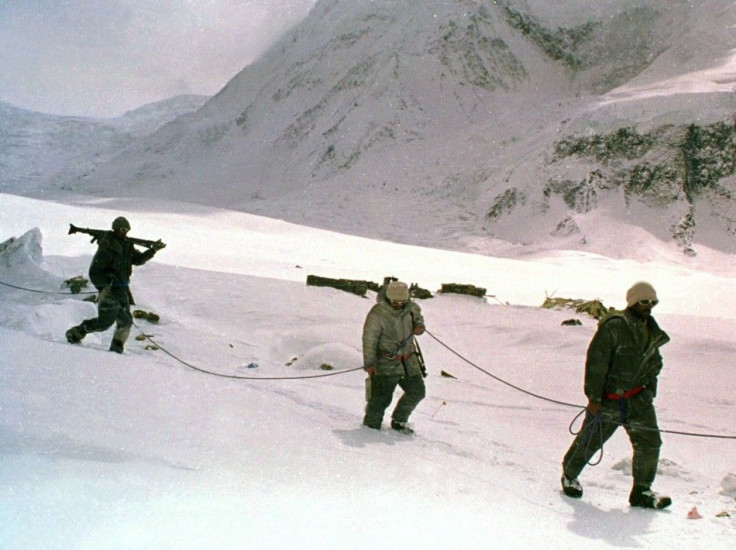Pakistan's Call For Siachen Resolution: India Cautious About Withdrawing Troops

Pakistani Army Chief General Ashfaq Parvez Kayani's plan for resolution of Siachen issue, which includes bilateral withdrawal of troops from the disputed zone, was met with a cautious welcome from India due to the concern on whether Islamabad would authenticate the ground position line at the world's highest battlefield.
Reviewing the search for 138 people buried alive when an avalanche struck Pakistan's Gayari army base, Gen. Kayani said Pakistan hoped the Siachen issue was resolved so that both the countries don't have to pay the cost, according to a Press Trust of India report. We want this issue to be resolved and it should happen. It is a tough mission for us and them, which has its costs, he said.
Indian Minister of State for Defense Pallam Raju welcomed Kayani's statement, saying that he was glad that Pakistan was also realizing the challenges and the economic problems of maintaining troops on the Siachen glacier.
They have their concerns and we have our concerns but it does take an economic toll. This money can be better spent on development of both countries, Raju was quoted as saying by the India media.
However, Indian military officials and defense analysts expressed concerns about the roadblocks before reaching a resolution.
We have been consistent on the steps necessary before demilitarization of Siachen can be carried out. We won't give up the advantage we enjoy without a very credible, and verifiable, commitment from their side, an unidentified senior Army officer was quoted as saying by the Times of India.
New Delhi wants Islamabad to authenticate the positions of the Actual Ground Position Line (AGPL) on Siachen before demilitarization or troop withdrawal.
Former prime minister of Pakistan and the president of the Pakistan Muslim League (N) Nawaz Sharif said that on the basis of his past experience in foreign affairs, he could say with confidence that once Islamabad took the initiative to withdraw the troops, India would also replicate the same, Pakistan media reported.
However, Pakistan's foreign affairs office denied the possibility of a unilateral repositioning of the troops, a day after Gen. Kayani's statement.
We are not thinking of any unilateral redeployment of troops, Pakistan's foreign affairs spokesperson Muazzam Khan said. Pakistan has made several proposals to resolve the military standoff on Siachen, including a proposal for mutual re-deployment of troops.
Both the nations are looking forward to set up a meeting of defense secretaries, which is likely to happen next month.
Meanwhile, almost two weeks after the tragedy hit the army base in Siachen, the rescue efforts ended even as the search for dead bodies began.
The US, Germany, Switzerland and Norway have sent expert teams to assist with the rescue and recovery effort.
The Gayari base tragedy is the biggest loss of Pakistan's army since 1984, when the conflict began. Though both the nations have stuck to a ceasefire since 2003, territorial defense concerns have made them continue vigilance in the mountain region with harsh sub-zero temperatures.
© Copyright IBTimes 2024. All rights reserved.












